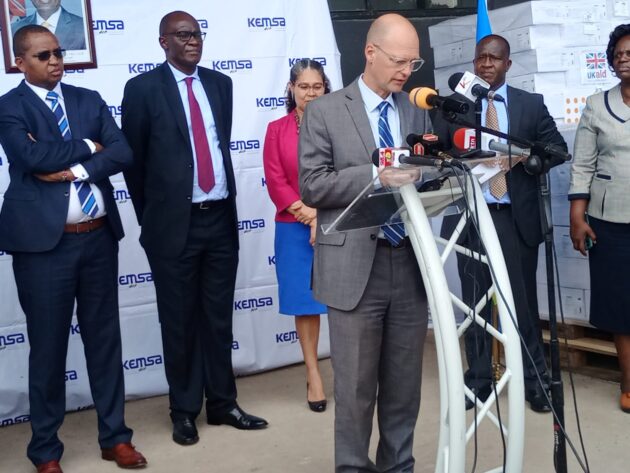
New consignment of self-injectable contraceptives delivered to KEMSA » Capital News
NAIROBI, Kenya May 16 – The Ministry of Health has received 450,000 doses of contraceptives donated by the UK government.
While receiving the supplies at the Kenya Medical Supplies Authority (KEMSA) warehouse in Nairobi, Director General Patrick Amoth said the donations will not only boost access but also enhance the uptake of family planning across the country.
“The integration of DMPA-SC self-injection into Kenya’s reproductive health landscape is part of broader reproductive health self-care initiatives aimed at improving service delivery. These will support the government’s efforts to increase access to family planning in line with global trends toward self-care interventions,” said Amoth.
The Sh57 million worth 450,000 doses of Subcutaneous Depot Medroxyprogesterone Acetate (DMPA-SC), a self-injectable form of contraceptive were procured by the United Nations Population Fund(UNFPA) with support funding from the UK government.
Anders Thomsen,United Nations Population Fund(UNFPA) Kenya representative said the family planning supplies will help prevent unintended pregnancies as well as meternal deaths.
“Funding for the family planning program is a vital component of the support we receive from the UK government, as it ensures that women can access and choose from a range of quality family planning methods, no matter where they live in the country. This in many ways, helps us deliver on the commitment to end preventable maternal deaths,” said Thomsen UNFPA Kenya Representative.
Amoth stated the ministry is committed to ensuring easy access of family planning supplies to women of reproductive health as the country gears efforts to achieve at least 64 percent of contraceptives uptake by the year 2030.
He revealed that the drug is a user-friendly injectable contraceptive that can be administered by trained individuals, including community health workers and women themselves.
“Kenya has made significant progress in promoting access to family planning, with the modern contraceptive prevalence rate rising to 57 percent in 2022, up from 53 percent in 2014.We are expanding access to family planning beyond traditional healthcare settings,” he stated.
Dr.Amoth noted that despite the misinformation on various family planning methods and the high financial cost of access the ministry is creating awareness of the crucial need of use of contraceptives by women of reproductive age.
The contraceptives set to benefit over 400,000 women will be distributed to various health facilities across the country by the Kenya Medical Supplies Authority (KEMSA).
They will also prevent 42,750 cases of unintended pregnancies and 122 maternal deaths.
In 2023, UNFPA supported the Ministry in expanding access to family planning commodities and services by procuring a range of family planning methods distributed to over 6,000 health facilities across all the 47 counties.
These commodities benefited over 2.5 million women of reproductive age.
